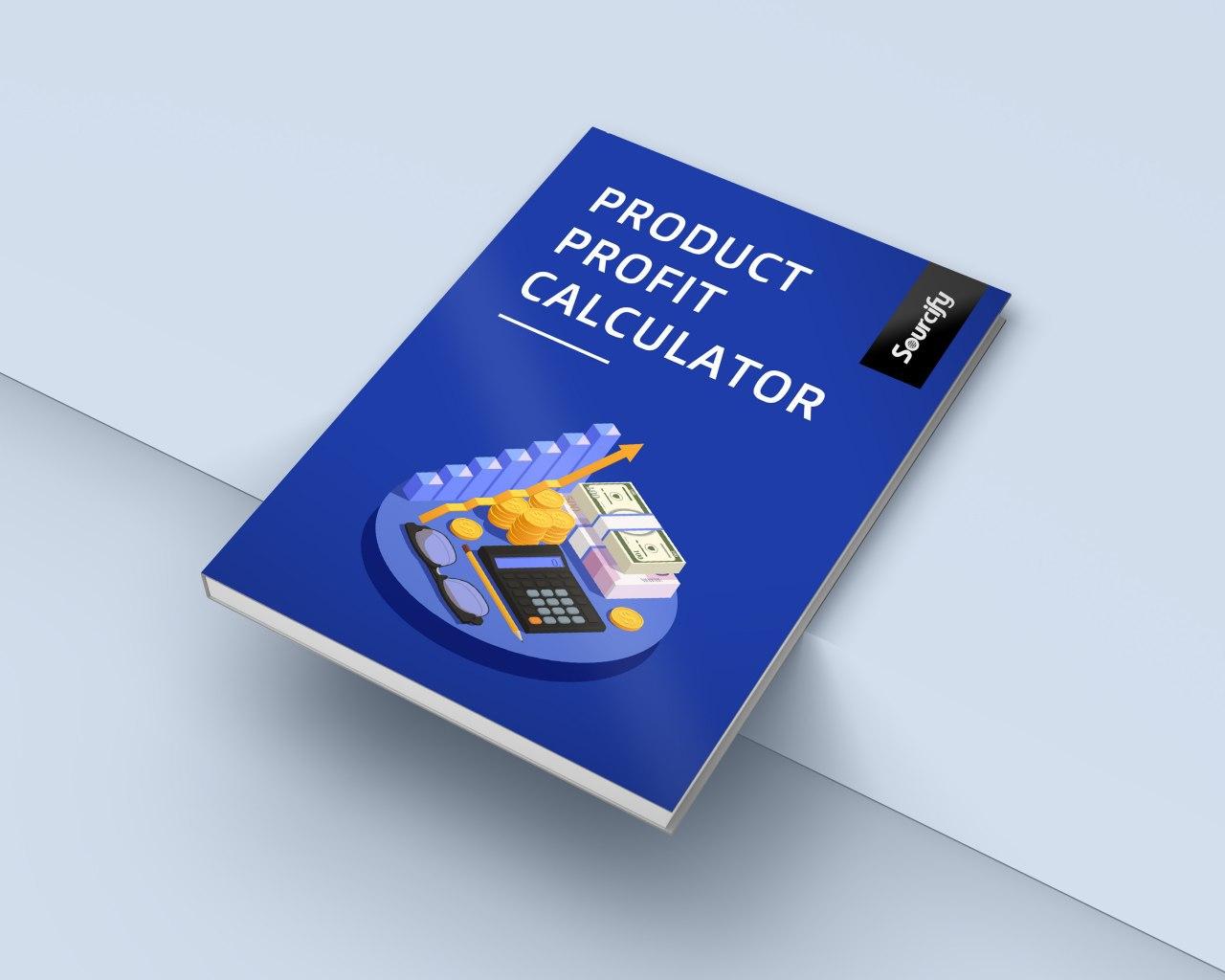It’s crazy to think that one of the sourcing sites people use most is full of scams. When you think of finding a manufacturer, many people start with Alibaba. Unfortunately, they often end up empty-handed, as they will have fallen victim to one of the thousands of scams present on Alibaba.
Alibaba itself, as a company, can’t be called a scam. If you look at what the company has done for the country of China, you’d be amazed. They brought manufacturers, which don’t usually have western world access, online. This enabled foreign buyers to have a clear path to interact with these factories and start producing more in China. As production increased, so did the inflow of money into China. Some politicians argue, without Alibaba spearheading this online directory, trade out of China would be drastically lower than it is today.
Regardless of how you view Alibaba and the country of China it’s always worthwhile to understand how a company you’re looking to use was founded.
That First Alibaba Apartment
Reading this section will help you learn how a company with a near $500 billion market cap stemmed out of Hangzhou, a city most of you have probably never heard of.
You see, when Jack Ma (the CEO of Alibaba) was starting in 1999, people were just beginning to think globally in China. Jack, on the other hand, had heard of Silicon Valley and yearned to compete on an international scale. When he assembled his team, he didn’t say they were going up against other Chinese companies, he said their competition was stemming from Silicon Valley.
Their first business was setting up websites that could be accessed in the western world to view Chinese factories. Selling Chinese factories on this service was not easy, as many didn’t have foresight into the opportunity for exports. As the volume of exports continued to increase, the demand for Alibaba rose, and more factories looked to set up websites that foreigners could view.
Alibaba soon realized there was another market they could tap into: B2C ecommerce or creating an eBay-like marketplace in China called Taobao. Taobao, which started in 2003, quickly became one of the biggest marketplaces in China, beating out Ebay. This has now become, alongside Tmall, the biggest revenue source for Alibaba.
Getting back to Scammers
Though most of the manufacturers listed on Alibaba are trading companies, feeder factories, or agents, there are legit ways to use this site to find a manufacturer. However, there are also unfortunately many different scams you can fall victim to. In this article we’re going to focus on all the scams we know, so you can recognize them AND avoid them! It’s vital that you have a good understanding of the various tricks that scammers use so that you can protect your money and your business.
Check out our list of some of the most common scams on Alibaba, as well as some less common ones, and how to avoid Alibaba scams. Remember that there are alternatives to Alibaba too. At trysourcify.com, you can source the factories you need for your manufacturing jobs without having to worry about the scams that plague Alibaba.
Scam #1: Unverified Alibaba profile for a company!
It is easy for anyone to open an Alibaba account and claim to be a manufacturer. We have done it as a test in five minutes. It’s crazy how simple the process is. Scammers who do this will open a new profile and pretend to be a legitimate company. They will use real details of a legitimate company and may pretend to sell their products, making it easier for you to be taken in, but at the end of the day, they are a fraud. They will basically just take your money and not send you anything. Sounds great, right!
If you want to learn how to avoid this scam check out this article by StartupBros on avoiding fraud on Alibaba. Scammers will often pretend to be a company from the UK, US or EU, which might make you trust them more. An unverified account is completely free, so they could technically open as many as they wanted. The simplest thing to do is simply to look for verified accounts only and to deal with them and them alone.
(Click here to install our Factory Confirm Chrome Extension, the best way to avoid Alibaba Fraud)
Scam #2: Sending Money To The Boss’s Bank Account
When you’re ready to pay for your order, your supplier says that there is a problem with their bank account. They then ask you to send money to the boss’ account, which is, of course, their personal account. It is possible to get lucky and receive your order, but in most cases, they will simply scam you and send nothing. You might wonder why people bother doing this. After all, a bank account is a bank account, right? But if they’re asking you to use their personal account, it’s probably because they don’t have a business account at all – or a business.
To avoid this scam simply never send money to a personal account. This scam can even happen with legit manufacturers so if they request payment to a personal account, I’d stop communicating with them as the chances of getting scammed are just too high. Only go through official payment channels and avoid any changes to the original plan. Secure payment methods are better because you can avoid letting your payment details get into the wrong hands.
Scam #3: Asking For Additional Payment For Customs Clearance
Once you’ve paid for your order, your manufacturer will ask you for additional payment to cover customs fees. If you don’t agree to pay, they come up with some lies about how they won’t be able to get your products out of China. They may also provide you with fake courier tracking numbers that have fake information about your goods being held in customs. This can easily sound legitimate. After all, you’ve probably paid customs fees to either import or export something from another country. But if you’re trading with a Chinese supplier on Alibaba, don’t be fooled by their lies.
If you receive a message like the above, you need to face it, you’ve been scammed. China has no such custom fees to pay when exporting goods. You have already been scammed and paying this additional “fee” won’t make your products magically appear. Do not pay anything as it won’t make a difference, you have unfortunately already been scammed. There’s still a chance you could recover your money, depending on how you paid, when you paid and where you live. There are possibilities to cancel payment or perform a chargeback on your credit card, or perhaps get in touch with your bank. It’s also a good idea to report the scam to your local fraud team or authority.
Scam #4: Refusing To Send Samples
This scam is quite simple: you contact a manufacturer for samples of a product they are already producing, and they say they only do bulk orders. This might not seem to be too big of a deal, but you don’t want to waste your money on a bulk order before even knowing if the products will be any good. Ordering samples gives you a range of advantages:
- You can test the quality of the product to see if it’s good enough for your brand
- You can check out the turnaround times of the factory – if they take a long time to send you a couple of samples, they could take forever with a full order
- You’ll be able to see what it’s like to deal with the customer service the company offers
- Getting a free sample shows you that the supplier is more likely to be legitimate and trustworthy
To avoid this scam simply only order from a manufacturer if you receive a sample beforehand. Don’t be shy about asking for samples – it’s a common and accepted thing to do, and you often pay for it anyway. Even suppliers that have minimum numbers for their product runs can still make you a couple of samples if they’re a legitimate business that you can trust. If they refuse to make you samples, you can assume that they don’t really want your business that much.
When you use Sourcify to find your factories, you can always be sure you’ll get a product sample. The service makes the sampling process easy too, so you don’t have to spend too much time securing a sample from a supplier.
Scam #5: Only Accepting Payment Through Western Union
If you receive a Proforma Invoice and it says Western Union under payment terms, you know something dodgy is going on. For those not in the know, Western Union is a money transfer service, which you can use to send money all over the world. Because you can send money directly, without using your bank account, it can be used to cover up all kinds of things. It’s a popular choice for scammers, not just on Alibaba but for all kinds of scams.
To avoid this scam, never send money via Western Union. Period.
When you use Western Union to pay for something, you are sending money to an individual, not company. It could even be a salesperson in a legit company scamming you. A legitimate business will always offer secure payment channels, usually giving you a choice of ways to pay. Don’t get taken in by scammers who insist that there’s no other way you can send your money, no matter what excuse they give you.
(Click Here To Learn The Right Way To Pay Manufacturers)
Scam #6: Proxy Company in Hong Kong
A proxy company is pretty much a piece of paper. To set one up all you need to do is register a business, which in Hong Kong can be done fast, and use that “business” to set up a bank account. There is no office, no representative, and the money in the proxy company account can easily be transferred elsewhere.
Many companies in southern China use offshore companies in Hong Kong because they can hide taxable income from mainland China. It also makes it easy for the Chinese company to avoid disputes with a foreign customer. This isn’t ideal for you, as you want to be able to deal with any problems as swiftly as possible. You don’t want to discover that you have no recourse if an issue occurs, or that the business has disappeared.
Generally speaking, stay away from proxy companies. However, some legit manufacturers do use them. Manage your risk and see if there are other options in this case. It’s best to try to find a company that’s more upfront about who they are, but it could be acceptable to use a supplier that goes through a proxy company if you can’t find any better options.
Scam #7: Fake Branded Products
Some people looking for factories on Alibaba are sourcing a manufacturer that can make unique products. However, others are looking for suppliers that produce branded products that they can sell on. Being able to sell products with a famous name attached is an advantage for your business – but not if they’re fake. One of the most common scams on Alibaba is selling fake branded goods. In fact, it could be the most common scam out there.
The solution to this scam is not to buy any branded goods from Alibaba at all. If you find products with the Nike logo or with your favorite TV show on it, it’s guaranteed to be fake. Chinese suppliers on Alibaba won’t be selling legitimate branded products, so just don’t buy them. Stick to using Alibaba to find factories to make your products, not ones that claim to be making branded goods. If you want any branded products, go straight to the official site and find their lists of approved suppliers. That helps you make sure that you get it right.
Scam #8: Poor Quality Products
You might think that bad products don’t exactly count as a scam. It just means it’s a bad company that isn’t very good at what it claims to do, right? There have to be some that don’t produce products that match the quality of others. However, some suppliers will purposefully do a bad job of manufacturing your products. It’s cheaper for them if they don’t try too hard, so they get your money without having to spend too much of it on actually making what you’ve ordered.
You don’t want to get your order, only to discover that everything is awful. You will be out of pocket, and you’ll have a lot of stock that’s essentially useless because it’s not good enough to sell. If you want to avoid getting scammed by an awful product, making sure you get samples before you place an order is a good first step. Of course, there are other ways to check out the quality of a product.
- Have a look at reviews and ratings to see what experiences others have had
- Use your instinct to weed out fake reviews
- Check the verification levels of stores and sellers to see how legitimate they are
- Look at the supplier’s certificates and check that they’re not fake
- Find the supplier’s website so you can read about their factory and manufacturing process – try performing a reverse image search on their photos to find out if they’re legitimate
- Tell your supplier that your products need to comply with a US CPSC regulation
Scam #9: Invoicing with the Wrong Payment Info
Sometimes, you might not be dealing with who you think you are dealing with. Even if you believe you have found a trustworthy factory, there could be a scammer behind the mask. Scammers sometimes manage to hack into the email accounts of legit suppliers and pretend to be them. Then when it comes to sending an invoice, they put their own payment details on the form.
There’s a simple way to deal with this, and it’s by checking any payment details before you transfer any money. The information on the supplier’s profile should match up with the payment details given to you on the invoice. If the details don’t match, you could end up paying your money to a scammer, who could be anyone from a complete stranger to an employee of the company trying to take money for themselves.
If you want to ensure secure payment and reliable suppliers, there are easier ways. When you use Sourcify, you can be sure that all the factories offered to you are vetted. If you’re not satisfied with the ones you’re matched with, Sourcify will offer you more or refund your money.
Scam #10: Good Samples, Poor Products
You’ve been smart and ordered samples of your products before going for a full run. The company has sent you your samples, and you think the quality is good enough for your business. So you order more, confident that you’re going to get a batch of quality products. However, when they arrive, they’re not up to the same standards as the samples. This could be because the company took better care with the samples to secure your work or even because they outsourced the samples to a different factory.
How can you avoid this scam? Ordering samples is supposed to help you find a decent supplier. The best way to avoid getting scammed on Alibaba through this method is to not rely on samples alone. You also need to take various other factors into account if you want to find a reliable seller. You should check their profile thoroughly and research the company’s background to find out as much about them as possible. If you’re willing to pay to make sure you get the very best product, another option is using a third-party service, such as Quality Inspectors, to check out the supplier and make sure the products you receive are up to your standards.
Another smart thing to do is to only order the supplier’s minimum order, to begin with. If it turns out that a proper run of your products doesn’t match the standards of the samples you received, you will still be out of pocket. However, you won’t have wasted as much money as you would have if you had gone for a larger order to get everything you need right away.
Scam #11: Products That Don’t Exist
A lot of scams on Alibaba work on the basis that there are no products, and the scammer is just trying to get your money. Not being able to provide the products isn’t exactly a scam in itself, but the way that Alibaba accounts advertise these non-existent products is. They’ll try to take you in by convincing you that whatever you need, they have it. But most factories don’t have the capacity to make a huge range of very different products. They would need a diverse range of equipment in order to fill all their orders. So you know it’s not realistic if a supplier says they can make pretty much anything you can think of.
To avoid these Alibaba scams, you should thoroughly check what other products the supplier has on offer, apart from the specific ones you’re looking at. If they’re selling a huge number of unrelated, irrelevant items that don’t seem to have any connection to each other, they probably don’t have the capacity to make these products for you.
Trysourcify.com also has an extremely useful tool that makes it simple for you to check out whether factories are legitimate or not. The Factory Confirm Chrome Extension from Sourcify makes it easy to check the legitimacy of Alibaba suppliers in real-time. The free tool uses artificial intelligence and digital analysis to make sure you don’t fall for a scam.
One Last Note About Branded Products
There are thousands of scammers on Alibaba, and we can’t cover every scenario in this article. The key to not getting scammed is communication, due diligence, and formalization.
Alibaba provides a range of safety features to help you make sure a manufacturer is legitimate, but even they aren’t completely foolproof. They include:
- Gold Sellers – these must pay a fee to show that they’re legitimate, but this doesn’t guarantee quality
- On-site verification from Alibaba employees
- Supplier assessment – inspection from a third-party company
- Trade Assurance
- Satisfaction history and level
- Certifications
- Live factory video, which can be produced by Alibaba so you can be more confident that they are real
If you’re looking to learn how to properly verify a manufacturer you can download our Factory Confirm tool found here.




